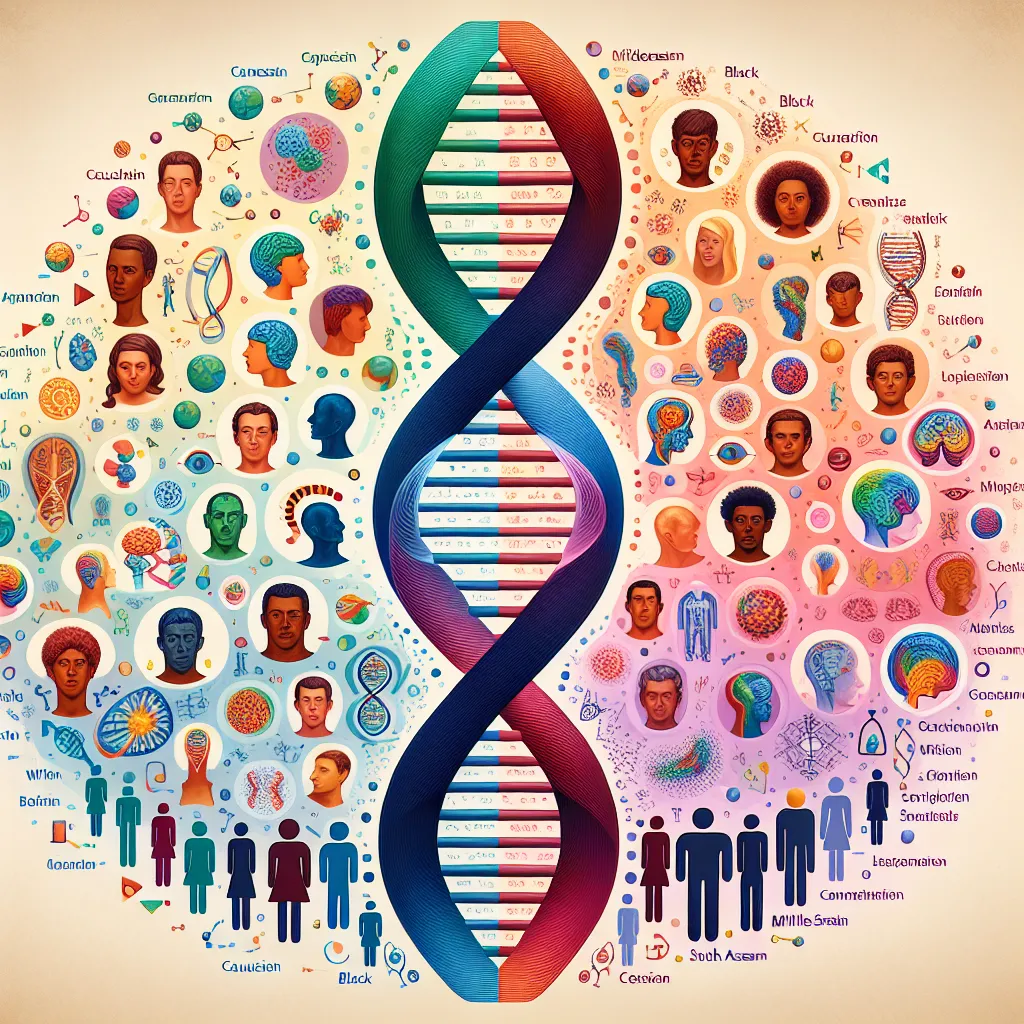The Role of Genetics in Personality Development
Personality development is a complex and multifaceted process influenced by an array of factors that shape who we are and how we behave. Among these factors, genetics plays a crucial role, acting as one of the foundational elements in the tapestry of our individual differences. Understanding the role of genetics in personality development is an essential step towards grasping the essence of human diversity and the intricate ways in which nature interacts with nurture throughout our lives.
At the very heart of this exploration is the genetic blueprint we inherit from our parents, encoded in the DNA that makes up our genes. Human personality is shaped by countless genetic variables that work subtly and complexly, alongside environmental influences, to mold our character traits, temperaments, and behavioral patterns. The scientific field of behavioral genetics, a discipline that combines genetics and psychology, has dedicated decades to untangling the genetic components that contribute to individual personalities.
One of the key aspects of this research is heritability, a measure that describes how much of the variation in a trait among people can be attributed to genetic differences. Studies involving twins, especially identical twins who share the same genetic makeup, have provided valuable insights into the heritability of various personality traits. These studies have consistently shown that genetics account for a significant proportion of the variability in traits such as extraversion, agreeableness, conscientiousness, neuroticism, and openness to experience, which are collectively known as the Big Five personality traits.
The personality attributes shaped by genetics are not only broad and general but also include specific tendencies like shyness, risk-taking, and empathy. By examining patterns within families and conducting genome-wide association studies (GWAS), researchers have begun to identify specific genes that are associated with these nuanced personality traits. For example, the DRD4 gene, which influences dopamine receptors in the brain, has been linked to novelty-seeking behaviors, while the 5-HTTLPR gene, associated with serotonin transport, has shown connections to traits related to anxiety and mood regulation.
Understanding how these genes exert their influence is complex, as they do not dictate personality outcomes directly. Instead, genes are responsible for the synthesis of neurotransmitters, hormones, and other biological mechanisms that affect how we process information, respond to stress, and interact with our environment. The interplay between our genetic predispositions and environmental experiences, starting from early childhood, is what shapes the nuanced ways in which our personalities unfold over time.
This relationship between genes and the environment is often described by the concept of gene-environment interaction. For instance, an individual may inherit genes that confer a predisposition to high levels of agreeableness, yet if they are raised in an environment that rewards competitiveness and discourages communal behavior, the expression of that agreeableness could be muted or adaptively channeled in different ways. Research has demonstrated that the same set of genes can result in a range of personality outcomes, depending on the context in which a person develops.
Genetic endowments can also influence how individuals react to and shape their environments, a phenomenon known as gene-environment correlation. For example, someone with a genetic inclination towards extroversion might seek out social settings that reinforce outgoing behavior, thus creating a feedback loop that further entrenches this trait. This gene-driven selection of experiences contributes to the unique developmental paths that individuals follow as they grow.
However, the relationship between genetics and personality is not deterministic. The plasticity of the human brain and the dynamic nature of personality ensure that genetic influences are just one part of the equation. Life events, cultural backgrounds, education, and other social factors interact with our genetic dispositions to yield the rich variability observed in human personality.
As we move into the future, the field of genetics is advancing rapidly, providing a deeper understanding of the genetic architecture of personality. With the advent of technologies like CRISPR and the increasing popularity of direct-to-consumer genetic testing, there is a growing potential for personalized insights that could revolutionize the way we think about personality development. However, ethical considerations and the understanding of the limitations of genetic information must guide the application of these advancements.
In an increasingly connected and globalized world, appreciating genetic diversity and its role in shaping personality is more important than ever before. Rather than reducing people to mere carriers of genetic traits, recognizing the role of genetics in personality development can help foster a deeper understanding and acceptance of individual differences. It also underlines the importance of creating environments, whether at home, in schools, or within societies, that support the healthy development of diverse personality types.
Moreover, those seeking to apply this knowledge in practical settings, such as in clinical psychology, education, or leadership development, must tread carefully. Genetic information should not be used to label or limit individuals, but rather to enhance self-awareness and provide personalized support that acknowledges the multifaceted nature of human personality.
In conclusion, the role of genetics in personality development is undeniable and forms a crucial thread in the fabric of our individual identities. From influencing specific traits to shaping our broader temperament, genetic factors interact with environmental inputs to create the rich tapestry of human personality. As our understanding of genetics continues to grow, so too will our appreciation for the diversity of personality and the unique contributions each person brings to the world. While respecting the complexities and limitations of genetic research, we can move toward a more nuanced and empathetic understanding of what makes us who we are.



Leave a Comment